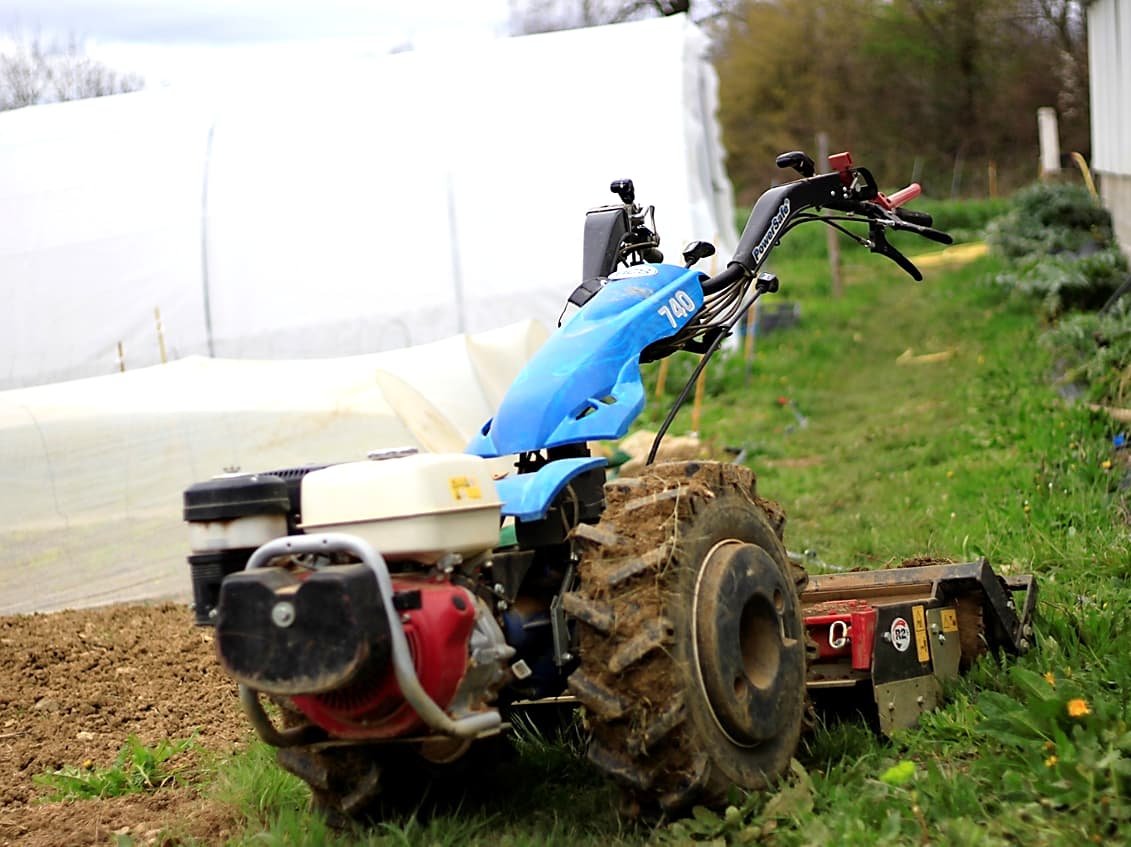Optimize your vegetable production with the BCS tiller
BCS 740
Soil cultivation on a market garden micro-farm is characterized by its very shallow aspect. To do this, we use a specific tool: a rotary harrow driven by a motorized tiller.
There are many models of tillers on the market, but we prefer the Italian BCS model. It's important to note that the Ferrari and Pasquali models are similar, simply derivatives of the same original model. However, they all offer comparable quality and efficiency.
At Les Jardins de la Valette, we use the BCS 740, powered by a 12 hp Honda engine. This powerful equipment enables us to drive the various tools we need for our market gardening work. Thanks to this judicious choice of equipment, we are able to maintain quality production while respecting the principles of sustainable, high-performance and environmentally-friendly agriculture.
Standardized market gardening
This specific type of tiller is perfectly suited to our standardized 75cm-wide system. This is a major advantage, as the tools that have been developed for it match our market gardening standard perfectly. This means we can be sure that every component will work effortlessly with the rest of our tools, making the job easier and more efficient.
The rotary harrow: essential shallow cultivation
The rotary harrow is an indispensable tool for working the soil. It differs from a rotavator in that it works the soil very superficially, at around 5 to 8 cm. This creates an ideal seedbed for planting and sowing, without working too deeply to preserve soil life.
This principle is particularly relevant to small-scale, intensive organic market gardening. It is based on the principle that only the surface layer needs to be worked, leaving soil life to decompact the deeper layers, thus respecting the main principles of agroecology.
On the other hand, the rotavator will disturb and mix the different soil layers, which can have a negative impact on soil structure and microbial life. The rotary harrow, on the other hand, preserves soil structure, which is essential for maintaining good soil health and sustainable agricultural productivity.
The rotary plough to create our boards
The rotary plough is an indispensable tool when it comes to reshaping our beds. Used in the passe-pieds, this tool allows the soil to be put back on the board. To do this, it is necessary to go back and forth: this is the process by which our planks are created. What's more, they are slightly raised, which facilitates subsequent maintenance. In this way, the use of the rotary plough is essential to the preparation of our beds and optimizes soil preparation for cultivation.
Despite being used for only a few hours a year, the BCS is an absolutely essential element on the farm. Its contribution is invaluable and its impact significant. Although it's not constantly in use, the time we spend using it is extremely cost-effective. This tool saves us a considerable amount of time and significantly improves our efficiency in the long term.
To go further
100% online training in organic market gardening
Our training courses are like ready-made kits adapted to France (climate, laws, sales methods, organization). They are designed for market gardeners who want to improve their results, and also for those who have a project in mind.
An internship in market gardening
As a trainee, you'll be able to get involved in all stages of vegetable production, from seed preparation to tillage and fertilization.




